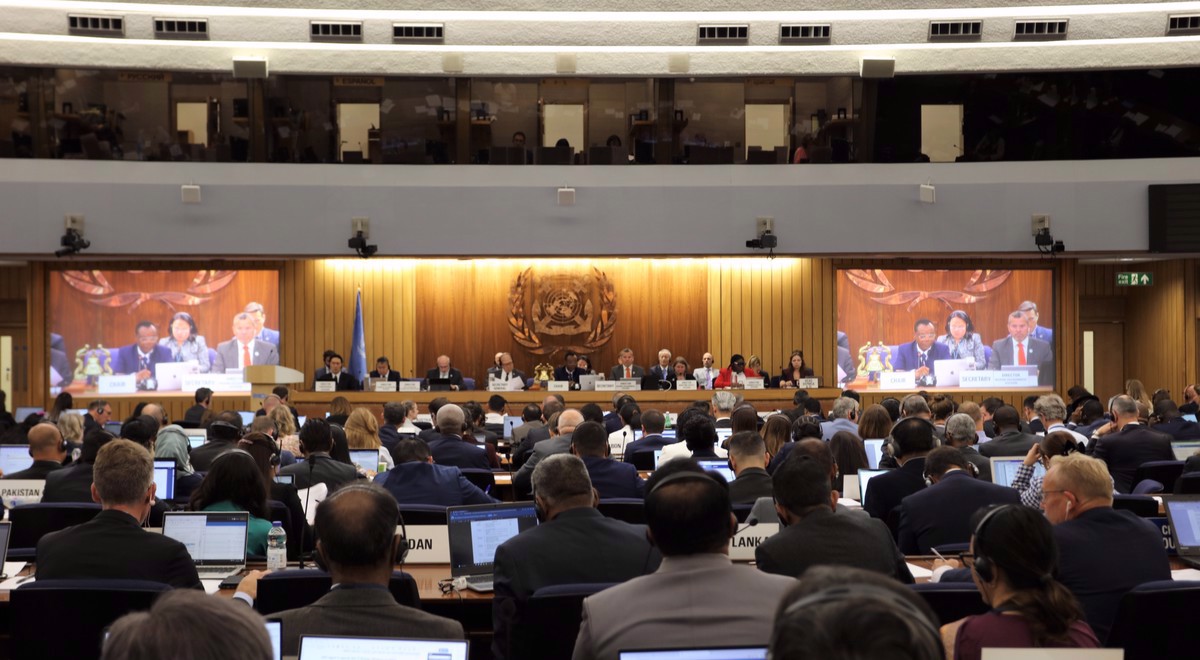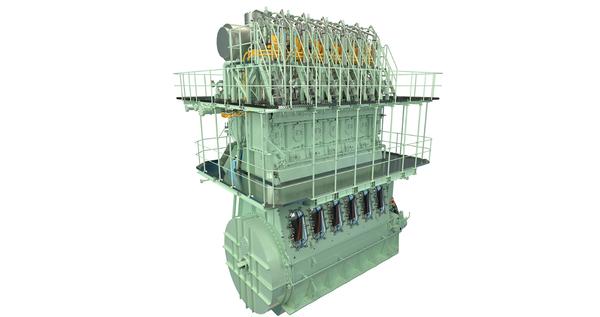MEPC 80: IMO puts shipping closer to 1.5°C goal, more work needed ahead - experts say
The International Maritime Organisation's (IMO) revised strategy brings shipping's share of global emissions more in line with the Paris Agreement's 1.5°C-aligned carbon budget, but will exceed it by 2032, according to the International Council on Clean Transportation (ICCT).
 PHOTO: The IMO's 80th Marine Environment Protection Committee (MEPC) meeting at IMO HQ last week. IMO
PHOTO: The IMO's 80th Marine Environment Protection Committee (MEPC) meeting at IMO HQ last week. IMO
IMO member states agreed to reach net zero by or around 2050 at the 80th Marine Enviromental Protection Committee meeting held last week. The members also agreed to set indicative checkpoints for 20% greenhouse gas (GHG) emissions reduction by 2030 (striving for 30%), and 70% cuts by 2040 (striving for 80%). Both targets are compared to 2008 levels.
The changes have been heavily criticised by environmental activists for not being aligned with the Paris Agreement. The 2015 agreement calls for changes that will limit the rise in global temperatures to well below 2°C above pre-industrial levels and strive to limit it at 1.5°C.
Prior to MEPC 80, the Science Based Targets initiative (SBTi) had concluded that a GHG reduction of 37% by 2030 and 96% by 2040 were needed to bring shipping in line with the 1.5°C goal. These targets imply that the shipping industry's carbon emissions budget would have to be about 12 gigatonnes well-to-wake carbon dioxide equivalents over a 100-year period (CO2e100) to remain in line with the goal, ICCT says.
"Under the revised (2023) strategy, we’re set to exceed the 1.5°C budget by approximately 2032 under either the 20% or 30% (striving) target; however, if shipping can get to zero WTW CO2e emissions by 2050 along this pathway, it will not exceed its well below 2°C budget," ICCT researchers Bryan Comer and Francielle Carvalho write.
Well-to-wake is a method for accounting for all the emissions generated from production of fuels to their use. CO2e100 refers to carbon dioxide equivalent emissions based on the 100-year global warming potentials of carbon dioxide, methane, and nitrous oxide, Comer and Carvalho say.
Developing countries like India and Brazil strongly opposed strict interim targets at MEPC 80 last week, as they fear this can increase supply chain costs and hit their export-dependent economies.
Countries including the Marshall Islands, Solomon Islands, Fiji, Tuvalu, the US, UK, Canada and New Zealand championed Paris-aligned targets for shipping, but to no avail. The BRICS block of countries and Latin American countries lobbied and successfully blocked progress, sustainable shipping manager at the environmental non-profit Transport & Environment Jacob Armstrong said.
“The discussions have gotten more polarised; the BRICS (led by China) and LatAm countries were hugely successfully in blocking progress and delaying action," he said.
Shipping advisor UMAS called the IMO’s revised strategy a “multilateral compromise” and said that it is most likely more revisions will be made when the next review happens in 2028.
“As long as the climate science does not change, the pressure will remain for these or potentially stronger targets to compensate if GHG reductions fall short in 2030,” UMAS says.
By Debarati Bhattacharjee
Please get in touch with comments or additional info to news@engine.online






